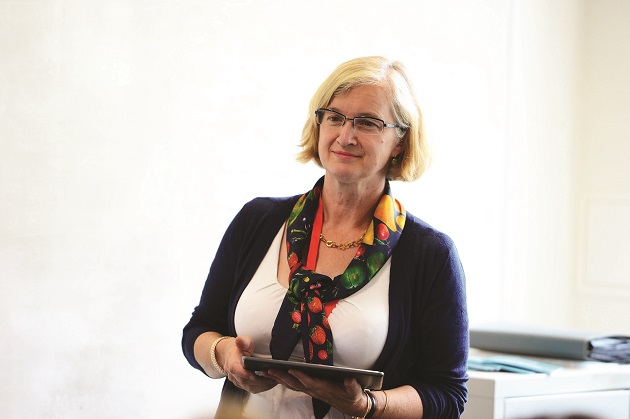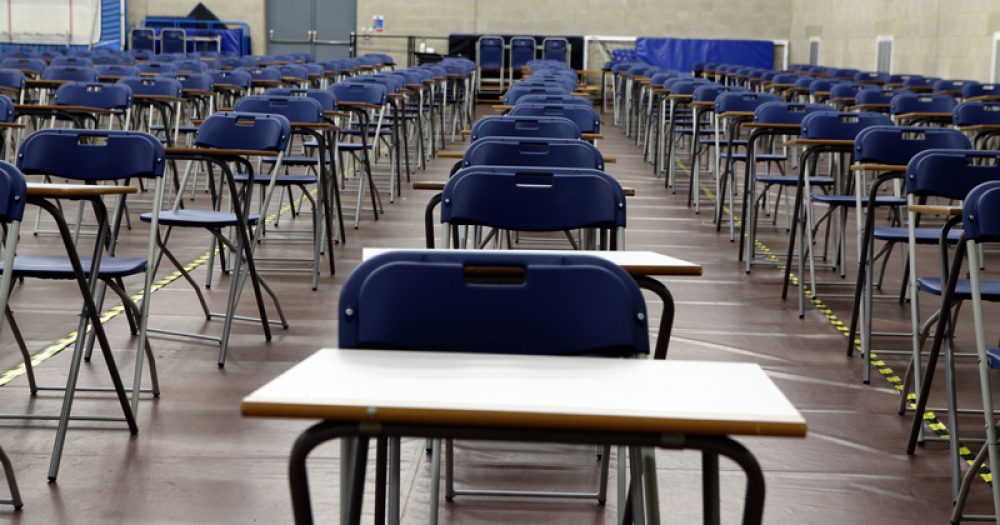An Essex school’s plans to restructure its timetable to meet the demands of the new “big fat” GCSEs has coincided with the announcement from Ofsted’s chief inspector of a crackdown on schools that are narrowing the curriculum to focus on exams.
Clacton County High has told parents that from September it will increase traditional hour-long lessons to 75 minutes to give pupils “a more in-depth learning experience”.
Principal Neil Gallagher said pupils will have four lessons a day instead of five, although the school’s start and finish time will stay the same.
No subjects will be dropped, but “optional” subjects will now have two-and-a-half hours teaching per week compared with the previous three.
Teaching time for core subjects will increase: English GCSE, for example, will go up to five hours a week.
The change is in response to the tougher English and maths GCSEs introduced for first examination this summer. New exams in other subjects will be phased in over the next two years.
Preparing for GCSEs so early gives young people less time to study a range of subjects in depth
The demands mean that many schools now begin preparation for GCSEs in year 9 instead of year 10.
But at last week’s Festival of Education at Wellington College, Ofsted’s Amanda Spielman said that the “growing cannibalisation” of the early part of secondary school was “not what will set our children up for great futures.
“Preparing for GCSEs so early gives young people less time to study a range of subjects in depth and more time just practising the tests.”
But Gallagher said the challenge of the new English specifications with their renewed emphasis on grammar and classic texts led him to restructure Clacton’s timetable.
Whole books, not isolated snippets, now had to be understood.
Previously the school taught four hours of English in years 9 and 10 and five hours in year 11, which required pupils attending an additional lesson each week after school.
From year 9, the school would now “devote five hours per week to teaching English literature and language; that’s a significant change”, Gallagher said.

Geoff Barton, general secretary of the Association of School and College Leaders, said the greater level of content in the new GCSEs meant it “made sense” to rethink curriculum structure.
But Spielman is unlikely to welcome such moves. She has said inspectors will now look carefully at school curricula to ensure they are “broad and balanced” as required under the framework. She also admitted this shift in focus did not mean that “GCSEs, and qualifications more generally, are not important, or that there is anything ignoble about making sure young people leave school with a set of excellent exam results” as these were “passports to future success”.
The dual focus, however, does leave heads feeling caught between competing demands.
Liam Collins, head of Uplands Community College in East Sussex, said that with government performance measures such as Progress 8 and Attainment 8 focused on eight subjects, with a particular emphasis on the core, the curriculum inevitably would narrow.
“We all understand what Amanda Spielman was trying to say about narrowing curricula. But the constant contradiction between Ofsted, government policy and the reality on the chalk face is incredibly draining,” he told Schools Week.
“The content in GCSEs has increased massively, so we have to reduce the number of GCSEs taken by reducing the number of options. Gone are the days of students leaving with 14 GCSEs, now they will be lucky to leave with eight. Is this a curriculum narrowing to ‘game’ the system?
“So you consider giving longer to study for the courses, say an extra year for key stage 4. But this is also described as narrowing the curriculum, although it means you can add additional subjects for study at GCSE.”







I agree with starting GCSE courses in Year 9, especially the Triple Science syllabus, and English Literature and Mathematics Grades 5-9. The new GCSEs, as mentioned in the article above, have increased content and need more time for in-depth study for full understanding and application of knowledge. English language should start in Year 7 and cross the curriculum to empower pupils with SPaG, communication, collaboration and researching skills. I also think we should take Year 6 out of Primary (to free up pupil space) and roll out a Middle School system accross England and Wales of Y6-Y8 where Sats are taken at the end of Y7. Then Senior Schools could concentrate on exams and suitable career pathways for children aged 14 upwards to make our State Education system more cost effective and focused on pupil learning and application of skills. I also believe in good local school partnership and sustainable schools.